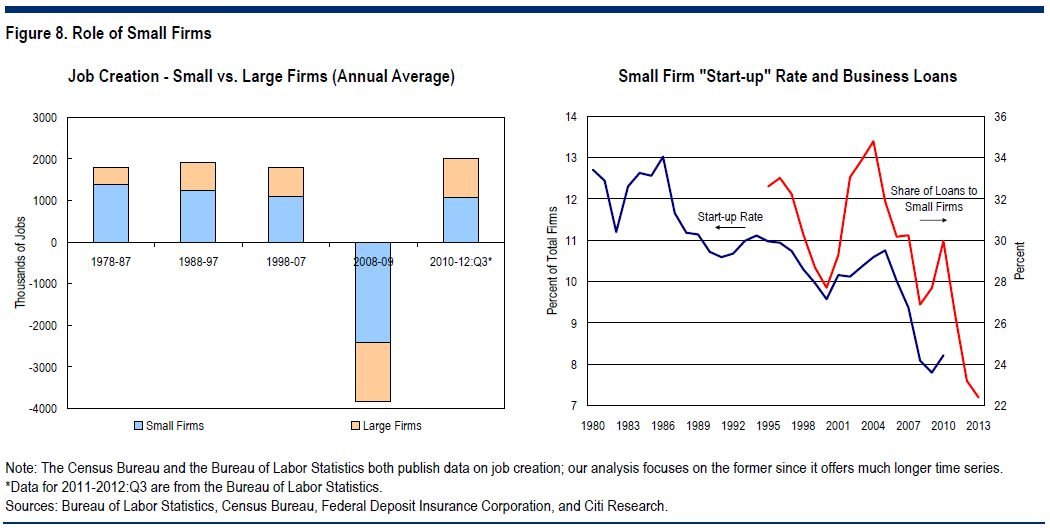The Decline Of America's Job-Creating Small Businesses
One of the reasons for this is the decline of America’s small businesses, which struggle to compete against the scale of the world’s multi-national, multi-billion dollar corporations.
Here’s Nathan Sheets, Citi’s Global Head of International Economics:
The travails of the U.S. small-firm sector. Our past work has emphasized the important role of small firms as engines of growth for the economy and, particularly, as job creators. The upper-left panel of Figure 8 documents this relationship. From the late 1970s to the time of the financial crisis, the share of net job creation accounted for by small firms declined some, but remained above 60 percent.
During the financial crisis, small firms bore the brunt of the job loss, as they were hit hard by the decline in construction and real estate (where small firms predominate) and by a sharp pull-back in bank lending (the red line in the right panel). Since early 2010, small firm employment has rebounded but has not yet come close to reversing the job losses sustained during the financial crisis. This is an issue that we are watching as a key indicator of the cyclical performance of the U.S. economy. Another concerning development is the steady decline since the early 1980s in the rate at which small businesses are being established. Research indicates that young firms—new start-ups—are especially powerful engines for job creation and real GDP growth. Another way of framing this observation is that it appears that the United States in the 1980s had some “secret sauce” that was effectively incentivizing the start-up of small firms. Better understanding what economic policies facilitated this outcome strikes us as a useful endeavor for future research.




Leave a Reply
Want to join the discussion?Feel free to contribute!